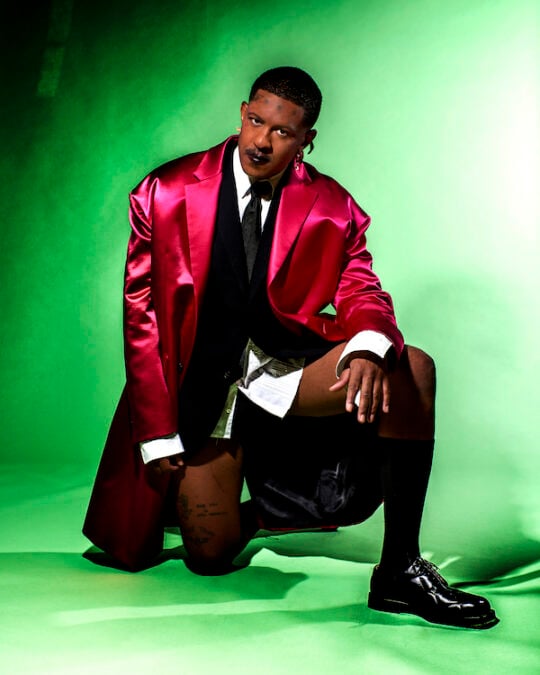Mykki Blanco is one of those people just born cool. The 36-year-old California native seems to master anything they try — be it poetry (“From the Silence of Duchamp to the Noise of Boys”), music (the rap and hip-hop pioneer’s 2016 debut, “Mykki,” was met with critical praise) or bold honesty and courageous activism.
After establishing themself as a talented performance artist and releasing several mixtapes and EPs, Blanco announced on Facebook in 2015 that they were living with HIV, expressing both anxiety and joy in the declaration.
“Fuck stigma and hiding in the dark, this is my real life. I’m healthy I’ve toured the world 3 times but I’ve been living in the dark, it’s time to actually be as punk as I say I am,” Mykki Blanco wrote in the post. “No more living a lie. HAPPY PRIDE.”
On the eve of Mykki Blanco releasing their sophomore full-length album, “Stay Close to the Music,” which is now available, and a fall tour through New York and Europe, the artist discusses their new musical direction, a return to touring, and how their HIV disclosure affected their career.

“A goal of my entire career when its come to my visuals is to tell the stories and portray scenarios in queer life that are very real but rarely touched on,” Mykki Blanco said. “Is there room to be queer when your a refugee seeking refuge? Are you made to choose between being Black and Being Queer? Are you made to live a double life in this new country, new world, does it matter even to be openly queer when your fighting against White supremacy? It’s a loaded visual and it plays upon these intersectional themes.” Photo: James Bantone
Tell us about your sonic evolution to “Stay Close to the Music.”
I wanted to feel as if I was in time with myself. I am someone who has been archived before they have climaxed. Praised for pioneering so many ways of being, and seeing, things that people only 10 years ago found quite taboo and are now ashamed to admit. I hate attaching a narrative of struggle to my career because that narrative is such a Black queer cliché and I’ve had quite a glamorous career and quite an adventurous life because of it, but struggle makes a for a romantic story. I wanted to finally feel I was making music where you put the album on and — from start to finish — you are moved, you are changed, you have experienced something sonically.
Tell us about the “French Lessons” video, which depicts a hate crime, a daring rescue, and a happy ending.
Most of my adult life has been spent living in the (European Union) and I’m most comfortable there; my tastes, my lifestyle, connecting with other Black and brown people who were also raised in many of these countries — I find a commonality in the diaspora here. “French Lessons” was filmed in Tbilisi, Georgia, a country…filled with so much history, so much creativity, talent, and just these amazing landscapes that are ancient, biblical. I worked with director Felix Kalmenson to create this narrative that felt straight out of Gilgamesh…but it was important…to have a happy ending because trauma can also be quite predictable.
How does it feel to return to regular live performing?
Absolutely amazing. My live shows tend to be what makes a solid fan for life. I’ve learned a lot about myself while performing and a lot about life, culture, people, different societies, different social norms by living this life — it hasn’t been so rock n’ roll always — there is definitely a spiritual dimension to it.
In the past, you expressed concerns about disclosing your HIV status. Were your fears founded?
I think in the past my concerns were warranted (because) when I disclosed publicly on Facebook in 2015 no one had ever done that in the way that I did it, and no one had done that, period, with any kind of platform for a few years — so I had reason to be very fearful and concerned. Society has been on somewhat of an acceleration curve…but the stigma faced even in 2020 is nothing compared to 2015. What happened was a miraculous outcome; the people that needed to flood into my life did and the people that needed to flood out of my life left, and I understood true compassion for the first time.
How do you foster hope and optimism in your life?
I am lucky in that I have lived through multiple things that were worse than Trump and worse than the pandemic. Even in my darkest moments, it has been proven to me that life will always take care of me.
This article originally appeared on HIVPlus.com, and is shared here as part of an LGBTQ+ community exchange between Q Voice News and Equal Pride.
